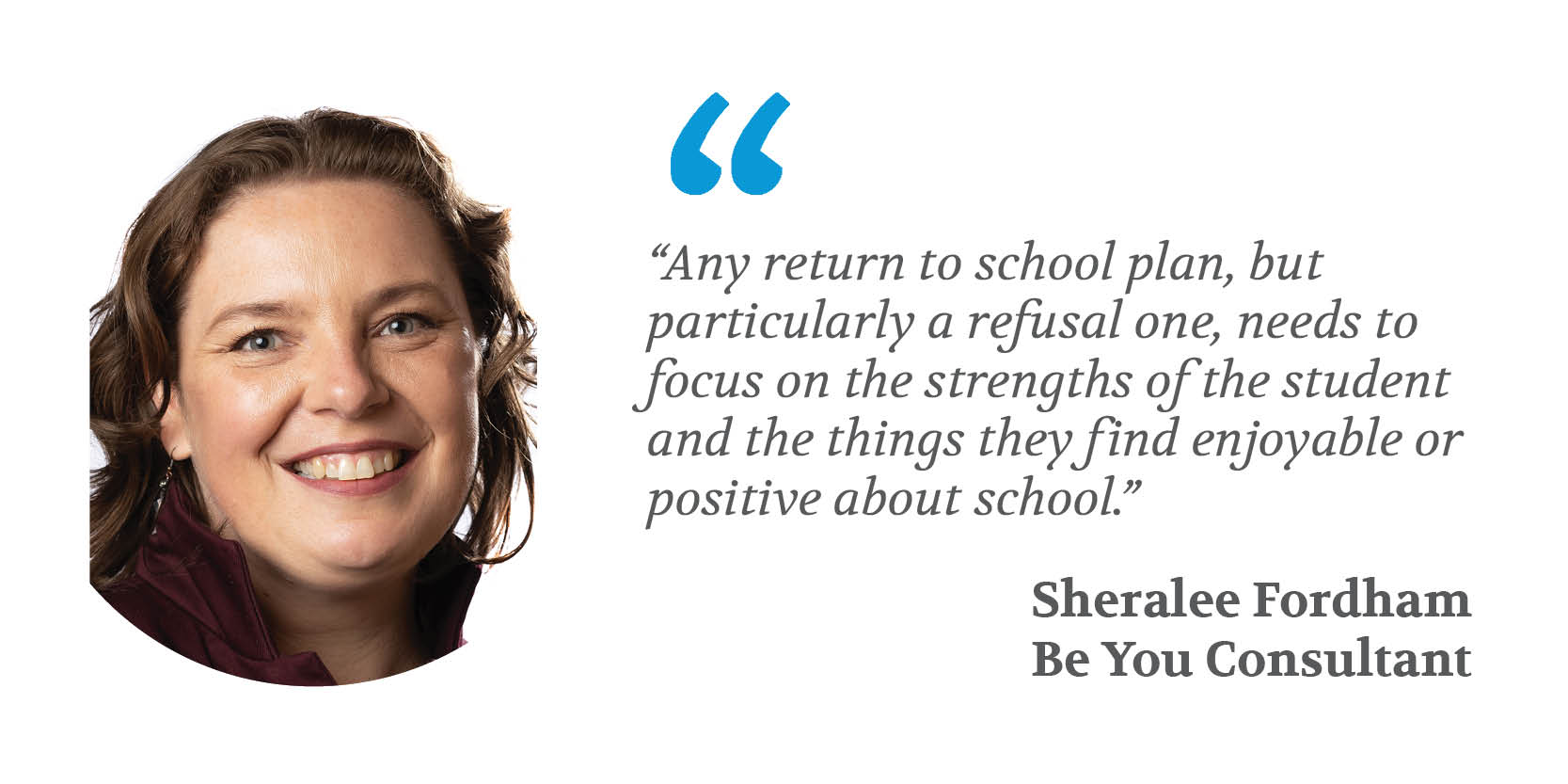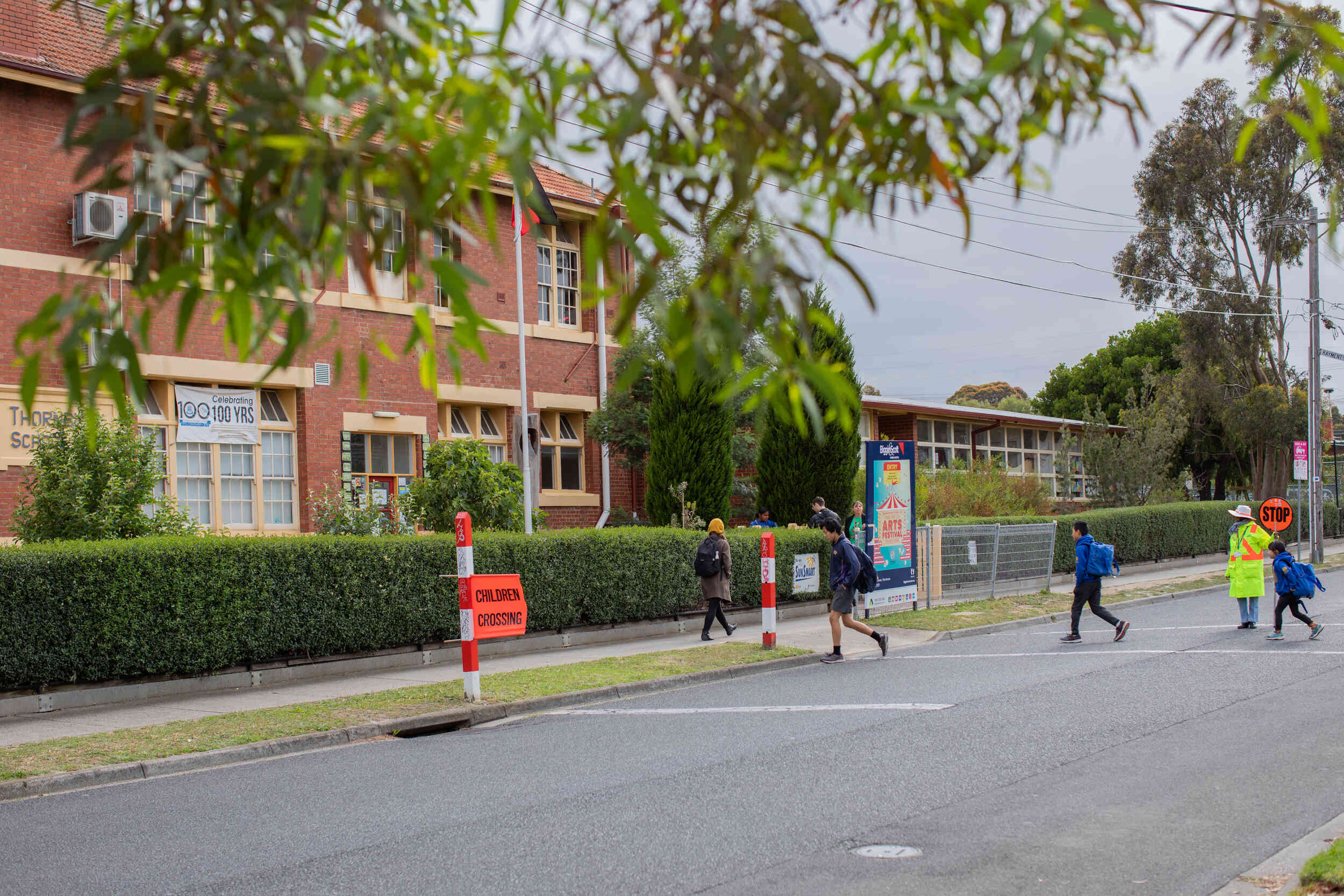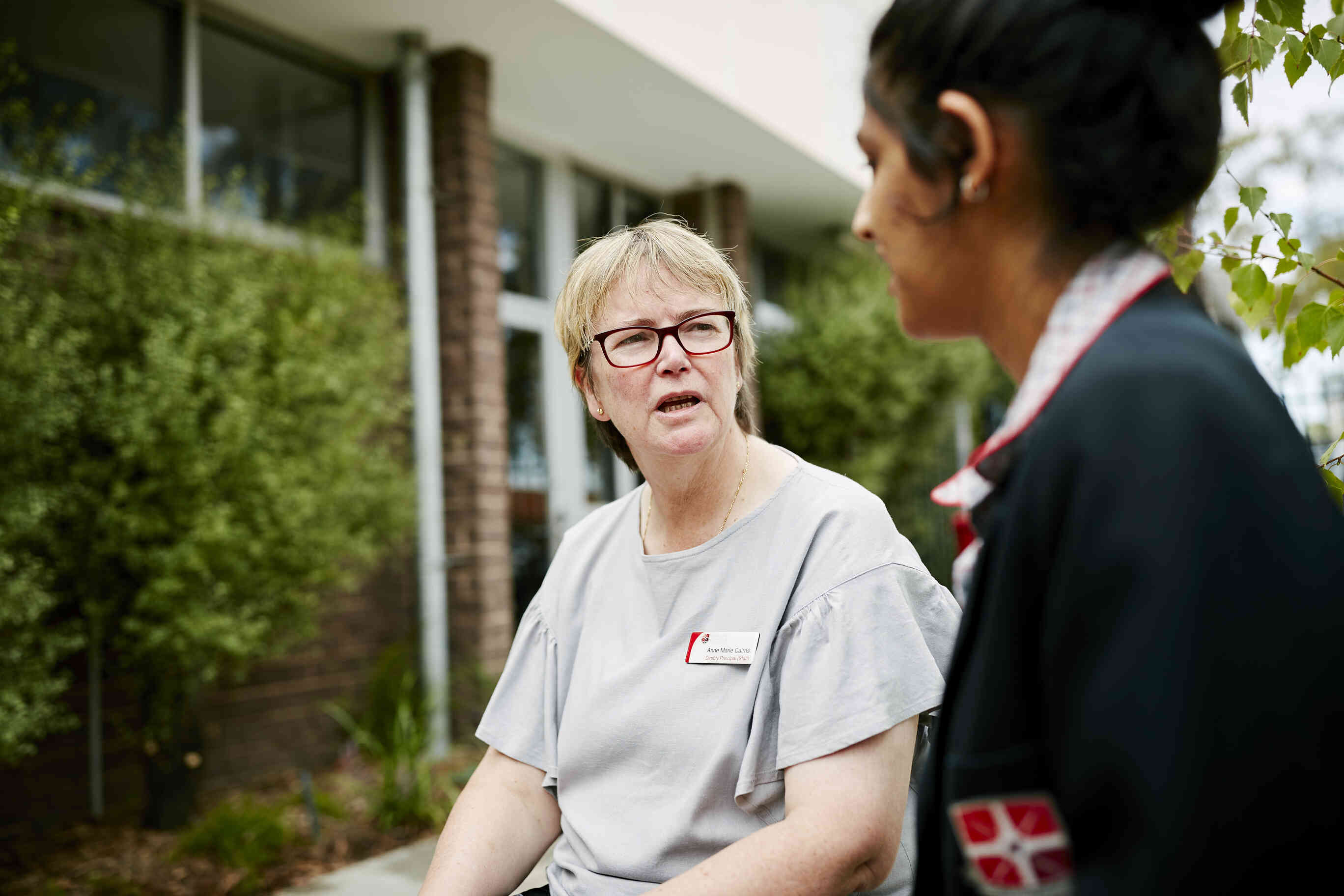There are often several factors that can contribute to why a child or young person may feel distressed by the idea of going to school. This may contribute to their reluctance to going to school.
A child or young person may appear to be feeling ill or unhappy the morning before school with a desire to stay home. They might have an emotional reaction at the idea of leaving for school in the morning.

School refusal
High levels of distress and a reluctance to go to school is known as school refusal.
School refusal is the term used to describe a situation where a child or young person is unable to attend school. This non-attendance is often related to worry or anxiety about going to school, rather than simply ‘wagging’ or truancy.
The reasons behind school refusal can be complex, and are different in each circumstance, so having multilayered, flexible, and student-centred approaches to improving school attendance is important.
School refusal may manifest in many ways, some signs may include:
- distress and anxiety about going to school
- tearfulness before school, sometimes resulting in conflict with family members
- frequent complaints of physical illness before or during school including headaches, tiredness, stomach upsets or diarrhoea
- poor teacher/student relationships
- refusal to get out of bed, leave the house or get out of the car to go to school
- difficulty attending school after disruptions to usual school routines such as holidays, school sporting events or school camps
- frequent absences from class including being late or periods spent in the sick bay.

School refusal may manifest in many ways.
How can school refusal impact a student?
School refusal may have a negative impact on:
- learning outcomes
- social and emotional development
- encourages maladaptive avoidant strategies
- friendships and relationships.
How to support a student returning to school?
A clear and well understood plan between a student, parents or carers, the school and any engaged mental health support services, can be a useful tool in addressing school refusal.
A Be You Return to School Support Plan aims provide a framework to ensure the best possible reintegration for a child or young person returning after time away from school. It should include strategies aiming to keep the young person safe, supported and connected with staff and peers.
Any return to school plan should focus on the strengths of the student, and what they have found positive no matter how big or small they may seems. A plan may also include situations the child or young person might find difficult and strategies on how managed for them to feel safe and supported.

Any return to school plan should focus on the strengths of the student, and what they have found positive no matter how big or small they may seems.
Steps to developing a plan
Take a student-centred approach in developing a return to school and recognise that a student’s perception of what may or may not be the problem.
Build trust and find a time to chat with the student to hear their concerns, as knowing their concerns supports addressing them.
Develop agreed clear achievable strategies with the student to identify and manage their concerns. Focus on their strengths and positive ways to engage in daily activities.
Celebrate and acknowledge milestone achievements no matter how big or small.
Consider other professional supports the student may require and agree how these supports may be introduced and when.
Review like any plan, it is important to acknowledge, sometimes plans or supports may change. It’s important to set up regular reviews to see whether the plan is still working or needs updating.
Connect with a Be You Consultant
- Be You Consultants can provide support building a whole school approach to mental health and wellbeing. Connect with a Be You Consultant.
- Download the Be You Return to School Plan
- For further learning beyond Be You visit Understanding school refusal on the headspace website.